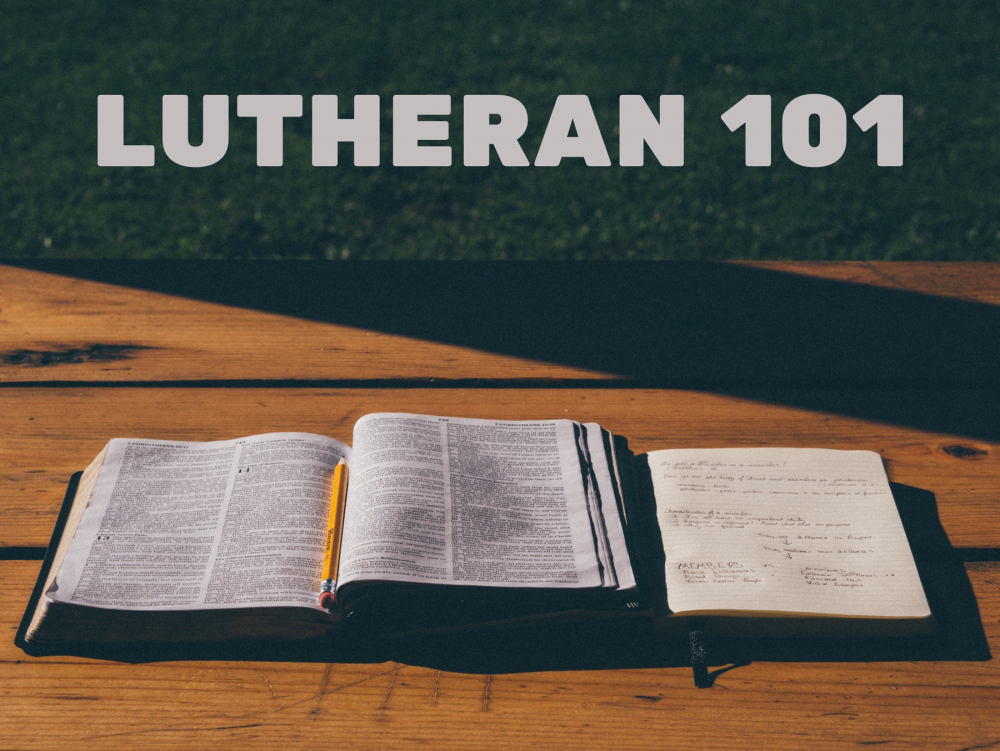If you know anything at all about the World Mission Prayer League, you may know that we are a Lutheran missionary community. Many of you are devout Lutherans, too: you will be pleased, I should think. Others, however, will be mystified. “Lutheran” means so very many things, nowadays. What kind of Lutheran are we talking about?
Over the next few months I hope to unpack, a little, this widely used, sometimes abused moniker. What does “Lutheran” mean for us, anyway? (Maybe you’ll want to ask what it means for you…)
The first thing to say about being Lutheran is that being “Lutheran” is not the first thing to say. Lutherans do not share this conviction uniformly, I am sorry to report. Some of our Lutheran friends are LUTHERAN!!, first of all. They wear their “Lutheranity” directly on their sleeve.
But they did not get the practice from Martin Luther.
“I ask that my name be left silent and people not call themselves Lutheran,” said the Great Reformer. “Let us extinguish all factious names and be called Christians…. I have not been and will not be a master” (cited by CFW Walther, 1844; italics added).1
The World Mission Prayer League is a Lutheran community, through and through. We confess the Lutheran confessions. We stand in the Lutheran tradition, with joy and deep conviction. Yet it is not the first thing that we will say about our community: it is not even in our name. And we take our cue here from Luther himself.
There are many deeply Lutheran church and para-church structures that do not carry “Lutheran” in their name, as it turns out – though you will find the Lutheran confessions featuring prominently in their doctrinal statements. The “Batak Christian Protestant Church (HKBP)” of Indonesia is one of them. The “Ethiopian Evangelical Church Mekane Yesus (EECMY)” is another. “Youth Encounter” is a para-church organization, deeply and deliberately Lutheran, that does not carry the moniker. Monikers are not what it’s about. “Lutheran” is not the first thing to say.
A second thing to say about being Lutheran is that being “Lutheran” can mean an awful lot of things. Years ago, you might have presumed that Lutherans had read the Small Catechism: not any longer. You might have supposed that Lutherans observed Advent: not so much today, I am afraid. Some Lutherans ordain women; others do not. Some Lutherans gather to worship in German or Swedish; most others do not. Some Lutheran pastors wear special black collars and colorful stoles; others wear sneakers and blue jeans. Some Lutherans will not associate with anyone but “their” kind of Lutheran – not even to shake an outsider’s hand. (I have met Lutherans like these!) Other Lutherans associate with anybody, it would seem. The moniker means so many things to so many people as to mean little at all, nowadays.
And here is a third thing to say about being “Lutheran” – and it may surprise you. Lutherans don’t speak Norwegian, for the most part. Lutherans don’t come from Missouri or Minnesota, generally speaking. They don’t have blue eyes. And Lutherans eat more ugali, these days, than lutefisk. (At this you may be relieved.)
This was not always the case, of course. Most Lutherans were northern European, once upon a time long ago – and you will still find many in northern latitudes. In the Americas, most Lutherans were northern European immigrants.
Today, however, many of the largest and fastest growing Lutheran churches on the planet are found in Asia and Africa. The Lutheran church of Tanzania is more than double the size of the Missouri Synod. The Lutheran church of Ethiopia is larger than the ELCA, NALC, AFLC, WELS and LB combined. I was recently visiting with the General Secretary of this burgeoning African church. He reported growth of 300,000 in the preceding year alone! Among Lutherans today, blue eyes and lefse are decidedly out of vogue.
So let’s be more precise.
“Lutheran” identifies us as a particular sort of Christian fellowship. Some Christian communities organize around hierarchy – bishops and popes, and such. Some traditions emphasize more or less democratic ideas – the power and rights of congregations, for example. Other Christian communities are mostly cultural phenomena.
But Lutherans, traditionally, find their bearing in a distinctive set of core documents: we call them our “confessions.” Lutherans are a confessional Christian fellowship. A shared, articulated faith stands at the center of our tradition. It is our confession.
And behind the confession, of course, there is the One who is confessed. There is One who stands behind our confession, at the focus and the center of our faith. That’s where we must find a “first thing to say”: the first thing to say will have always to do with him.
Next month: Being confessional…
1 http://www.lutherquest.org/walther/articles/nameLuth.htm
Other posts in this Lutheran series:

Very eye opening and strengthens ones faith. Thanks be to GOD.